Call centers are crucial for providing fast and helpful support in today’s busy business world, especially for customer service. They help customers talk to companies quickly and easily. Many businesses use customer service outsourcing to ensure they have enough staff available to assist customers.
Contact center services help make customer interactions easier. They include phone support, email, live chat, and social media management. These services aim to increase customer satisfaction by answering questions and providing personalized support.
Good communication helps make brands look better and builds strong relationships with customers. Tools like call routing, IVR systems, and CRM integration make managing calls easier. They also give important customer info, making support more personal and less frustrating.
Understanding the Crucial Role of Contact Center Services
Contact center services serve as the backbone of effective customer support, connecting customers with trained professionals promptly. They provide a reliable platform for inquiries, enhancing overall customer satisfaction.
Key Aspects of Contact Center Services
Multichannel Communication
Using phone calls, email, live chat, and social media to talk to customers makes things simple and easy for them. This multichannel approach ensures that customers can reach out through their preferred method, improving overall satisfaction and engagement.
Businesses that excel in multichannel communication often see higher customer retention rates. Customers like having the choice to talk in different ways, whether it’s a quick phone call, a detailed email, or an easy chat window. This flexibility leads to higher satisfaction and loyalty.
Efficient Call Management
Advanced technology ensures calls go to the right agents, reducing wait times and quickly connecting customers with experts. This efficient call management is crucial for resolving customer inquiries swiftly and accurately.
Modern call routing systems use AI and smart rules to send calls to the right agents based on the question and their skills. This reduces the frustration of customers by avoiding multiple transfers or long waits on hold.
Expertise and Training
Contact center agents go through tough training to make sure they can answer questions and solve customer problems correctly. This focus on agent training ensures high-quality customer service operations.
Training programs typically cover various aspects such as technical support, product knowledge, soft skills, and customer care techniques. Well-trained agents are better prepared to handle complex issues, leading to quicker resolutions and higher customer satisfaction.
Data Collection and Analysis
Contact center services play a vital role in collecting and analyzing customer data. These data-driven insights provide valuable information for product improvement and business growth. By understanding customer preferences and pain points, businesses can make informed decisions to enhance their services.
Data collected from customer interactions can reveal trends and patterns, helping businesses identify areas for improvement. For example, frequent issues raised by customers might indicate a need for changes in a product or service.
24/7 Customer Support
Offering round-the-clock support is beneficial for businesses with diverse time zones. 24/7 availability builds trust and reliability, ensuring that customers can receive assistance whenever they need it.
Always being available important for global businesses because customers can be in different parts of the world. Offering 24/7 support makes sure everyone gets help on time, no matter their time zone.
The Benefits of Contact Center Services for Your Business
Optimizing Customer Experience Through Contact Center Services
Here are some key ways in which contact center services help enhance the customer experience:
- Communication Channel: Contact centers provide different ways to communicate, like phone calls, email, live chat, and social media. This allows customers to choose their preferred method of interaction, ensuring convenience and ease of access.
- 24/7 Availability: Contact centers provide round-the-clock support, reducing waiting times and improving overall customer satisfaction.
- Personalized Interactions: With advanced CRM systems and customer data, contact center agents can make customer interactions more personal. They can call customers by name and know their history and preferences.
- Efficient Issue Resolution: Contact centers streamline the issue resolution process by equipping call centers agents with comprehensive knowledge bases and troubleshooting tools. This ensures faster resolutions and minimizes customer frustration.
- Handling Complex Inquiries: Call centers can handle tough questions and give you all the details about products or services. This helps build trust and confidence in customers, leading to enhanced loyalty.
- Proactive Customer Engagement: Contact centers can proactively reach out to customers for feedback, support, or updates on new offers. This proactive approach enhances customer engagement and cultivates long-term relationships.
- Data-Driven Insights: Contact centers learn what customers like or don’t like by collecting and looking at conversation data. This helps businesses improve their products, services, and customer support.
Measuring the Success of Contact Center Services
Key Performance Metrics
To ensure the effectiveness of contact center services, it is important to measure various performance metrics:
- Response Time: Assess the average time taken to respond to customer inquiries.
- First Contact Resolution (FCR): Check how good the service is by seeing how many problems they fix the first time you ask for help.
- Customer Satisfaction Score (CSAT): Use post-interaction surveys to gather customer feedback and guide service improvements.
- Call Abandonment Rate: Identify issues like long wait times or inefficient routing systems by tracking the call abandonment rate.
- Agent Productivity: Measure efficiency through metrics like calls handled per hour and average handling time.
- Quality Assurance: Ensure consistent, high-quality support with processes like call monitoring and reviewing recordings.
Challenges and Solutions in Implementing Contact Center Services
Common Challenges and Corresponding Solutions
Implementing contact center services can come with several challenges. Here are some common ones and their solutions:
Integration with Existing Systems
Integrating contact center services with existing business processes and CRM systems can be complex. Using a unified communication platform that seamlessly integrates with existing systems simplifies this process.
For example, cloud-based solutions can work with different CRM platforms. This allows data to move smoothly between systems and ensures we save and can review all customer interactions later.
Scalability
Contact centers need to be flexible and scalable to meet changing business demands. Cloud-based contact center solutions let businesses easily add or remove agents as needed to handle customer calls.
Scalability is crucial for handling peak times, such as during holiday seasons or special promotions. Businesses can quickly scale up their operations to handle increased call volumes without compromising on service quality.
Training and Onboarding
Providing proper training and onboarding for contact center agents is crucial for effective customer support. Learning becomes easier and faster with job skills and social skills training programs, plus online learning and virtual classrooms.
Continuous training keeps agents informed about new products, services, and technologies, so they can always offer the best support.
Maintaining Consistent Service Quality
Implementing quality monitoring systems and employing customer feedback mechanisms can help maintain consistent and high-quality customer support. Regular performance evaluations and coaching sessions ensure agents meet service level agreements (SLAs).
Quality assurance teams watch interactions and give feedback to agents, helping them get better and keep high service standards.
Data Security and Compliance
Protecting customer data and complying with regulations like GDPR and PCI DSS is essential. Implementing robust security measures, such as encryption and access controls, along with regular audits, helps address any weak points.
Businesses need to keep up with rule changes and make sure their contact centers follow all laws to avoid fines and keep customer trust.
Monitoring and Reporting
Effective monitoring and reporting tools are essential for measuring performance metrics and identifying areas for improvement. Real-time dashboards and analytics tools provide valuable insights into operational efficiency and customer satisfaction, driving continuous improvement.
These tools can track key numbers and show performance in simple charts, helping managers see patterns and make smart choices based on data.
The Future of Contact Center Services
Emerging Trends and Technologies
The landscape of contact center services is evolving rapidly, driven by advancements in technology. Here are some key trends shaping the future:
Omnichannel Communication
Customers expect seamless interactions across multiple digital channels, including voice calls, email, chat, and social media, enhancing their overall experience.
Omnichannel communication ensures that customers have a consistent experience regardless of the channel they choose. For example, a customer might start by asking a question through email and then discuss it over the phone without needing to explain the issue again.
AI and Automation
AI-powered chatbots handle routine queries, freeing human agents to focus on more complex tasks. This ensures quicker resolutions and improved customer satisfaction.
Automation can also assist with call routing, appointment scheduling, and data collection, enhancing efficiency and allowing agents to concentrate on delivering exceptional customer service.
Data Analytics and Personalization
Big data analytics enable personalized customer interactions by predicting issues and providing tailored solutions.
By analyzing past interactions and customer behavior, contact centers can anticipate customer needs and offer proactive support. Personalization helps in building stronger relationships and fostering customer loyalty.
Self-Service Options
Resources like FAQs and video tutorials help customers fix problems on their own. And it also reduces the load on contact centers.
Self-service options provide customers with quick answers to common questions, allowing them to solve problems on their own. This not only improves customer satisfaction but also frees up agents to handle more complex inquiries.
Remote and Work-From-Home Models
The move to remote work offers flexibility and access to more talent, which helps contact centers save money.
Remote work models allow businesses to hire skilled agents from different location. Ensuring they have the best talent available. It also offers employees better work-life balance, which can lead to higher job satisfaction and reduced turnover.
FAQs
Q: What is a contact center service?
A contact center service is where customer service agents help customers via phone, email, chat, or social media. They answer questions, solve problems, and give information about products and services.
Q: Why do businesses use customer service outsourcing?
A: Businesses use customer service outsourcing to save time and money. By hiring outside experts, they can provide high-quality support without having to manage a large team themselves.
Q: How do contact centers help customers?
A: Contact centers help customers by answering their questions, solving their problems, and giving them the information they need. Agents are trained to be friendly and knowledgeable, so customers get the best support.
Q: What are some benefits of using a contact center service?
A: Some benefits include 24/7 support, faster response times, and access to trained professionals who can handle various issues. This helps improve customer satisfaction and loyalty.
Q: How do contact centers keep improving their service?
A: Contact centers improve agents. By providing regularly training, reviewing calls and chats for feedback, and using tools to monitor performance and identify trends.
Q: Are contact center services safe for my personal information?
A: Yes, reputable contact center services follow strict privacy laws and security measures to protect your personal information. They make sure that all data is kept confidential and secure.
Q: Can small businesses use contact center services?
A: Absolutely! Contact center services can be beneficial for businesses of all sizes. Small businesses can especially benefit from outsourcing their customer support to provide excellent service without needing a broader team.
Bringing Your Customer Experiences to the Next Level
Providing exceptional customer experiences across every channel is crucial for business growth today. However, managing all aspects of customer service in-house can be challenging. Partnering with the right outsourced contact center
Businesses need a dedicated customer care team, but navigating the industry and hiring the right talent can be challenging. At RabyIT Contact Center, we bridge the gap between your company and its clients all over Canada, saving you time and allowing you to focus on business growth.




